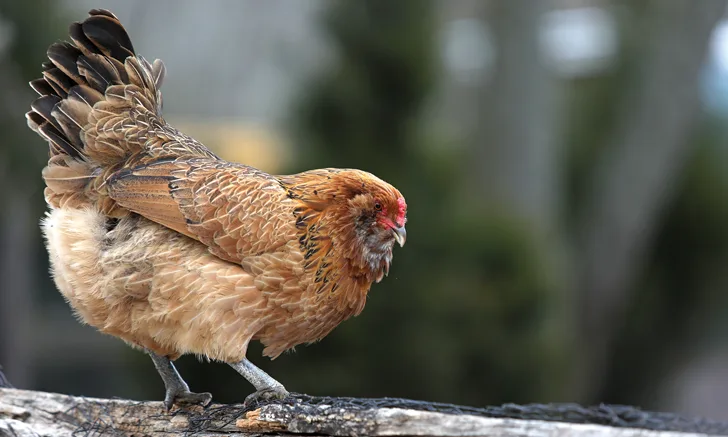Do Backyard Chickens Pose Any Health Risks to Humans?
Casey Barton Behravesh, MS, DVM, DrPH, DACVPM, Centers for Disease Control and Prevention, Atlanta, Georgia

Owners of backyard chickens and other poultry (eg, ducks, geese, turkeys) should be made aware of the risks these pets pose to humans and take basic biosecurity steps to protect against zoonotic disease transmission. Backyard poultry can appear healthy and clean but can carry Salmonella spp or Campylobacter spp.1-3 Eggs and habitats can also become contaminated.1-3
Zoonotic diseases that backyard poultry may spread to humans include salmonellosis, campylobacteriosis, and avian influenza viruses. Since the 1990s, numerous widespread outbreaks of human Salmonella spp infections linked to contact with backyard chickens have been documented in the United States.4 Some humans—including children younger than 5 years, humans with weakened immune systems, humans 65 years of age or older, and pregnant women—are at higher risk for serious illness from poultry-borne zoonotic diseases.
Salmonellosis & Campylobacteriosis
Symptoms of salmonellosis or campylobacteriosis include diarrhea (which may be bloody), fever, and/or abdominal cramps. In cases of severe infection, hospitalization may be required and infection may spread from the intestines to the bloodstream and other body sites, which can be life threatening. Infection generally lasts up to one week.
Avian Influenza Viruses
Avian influenza viruses (ie, diseases caused by infection with avian influenza Type-A viruses) occur naturally among wild aquatic birds worldwide and can easily spread and infect domestic poultry and other avian and animal species.5 Wild aquatic birds (eg, ducks, geese) can be infected with avian influenza viruses but appear healthy; however, some of these viruses can cause serious illness and death in domestic poultry (eg, chickens, ducks, turkeys). Infected birds can carry viruses in saliva, mucus, and feces.5
Avian influenza viruses can infect humans via inhalation or contact with the eyes, nose, or mouth.5 Avian influenza in humans has ranged from mild to severe. Signs and symptoms include fever, cough, sore throat, runny or stuffy nose, muscle or body aches, fatigue, headaches, conjunctivitis, diarrhea, nausea, vomiting, and difficulty breathing. Humans in close or prolonged unprotected contact with infected birds or contaminated environments are thought to be at greater risk for infection, and some humans—including children younger than 5 years, humans with weakened immune systems, humans 65 years of age or older, and pregnant women—are at greater risk for serious illness from avian influenza virus infections. Most reported avian influenza infections in humans have occurred after unprotected contact with infected birds or contaminated surfaces.6
Prevention
Veterinarians should advise owners of backyard chickens and/or other poultry about zoonotic risks and how to reduce the risk for disease transmission:
Hands should always be washed thoroughly with soap immediately after touching poultry or anything in their habitat.
Adults should supervise handwashing by young children.
Hand sanitizer should be used if soap and/or water are unavailable.
Poultry should not be allowed to enter homes, especially areas where food or drinks are prepared, served, or stored.
Owners should designate a pair of shoes to wear while caring for poultry and avoid bringing those shoes into the home.
Children younger than 5 years, those with weakened immune systems, pregnant women, and adults 65 years or older should not handle or touch chicks, ducklings, or other live poultry.
Food or drink should not be consumed in areas where poultry live or roam.
Birds and other poultry should never be kissed or snuggled, and touching of the face or mouth after handling birds should be avoided until hands can be washed.
Equipment or materials used to raise or care for live poultry (eg, cages, feed or water containers) should be cleaned outside the home.